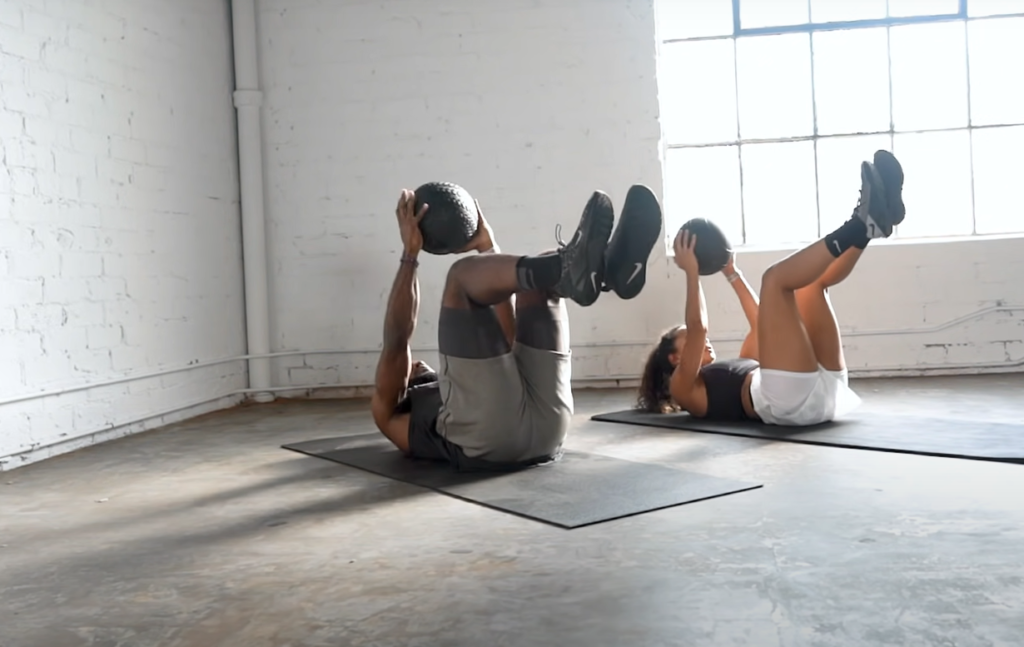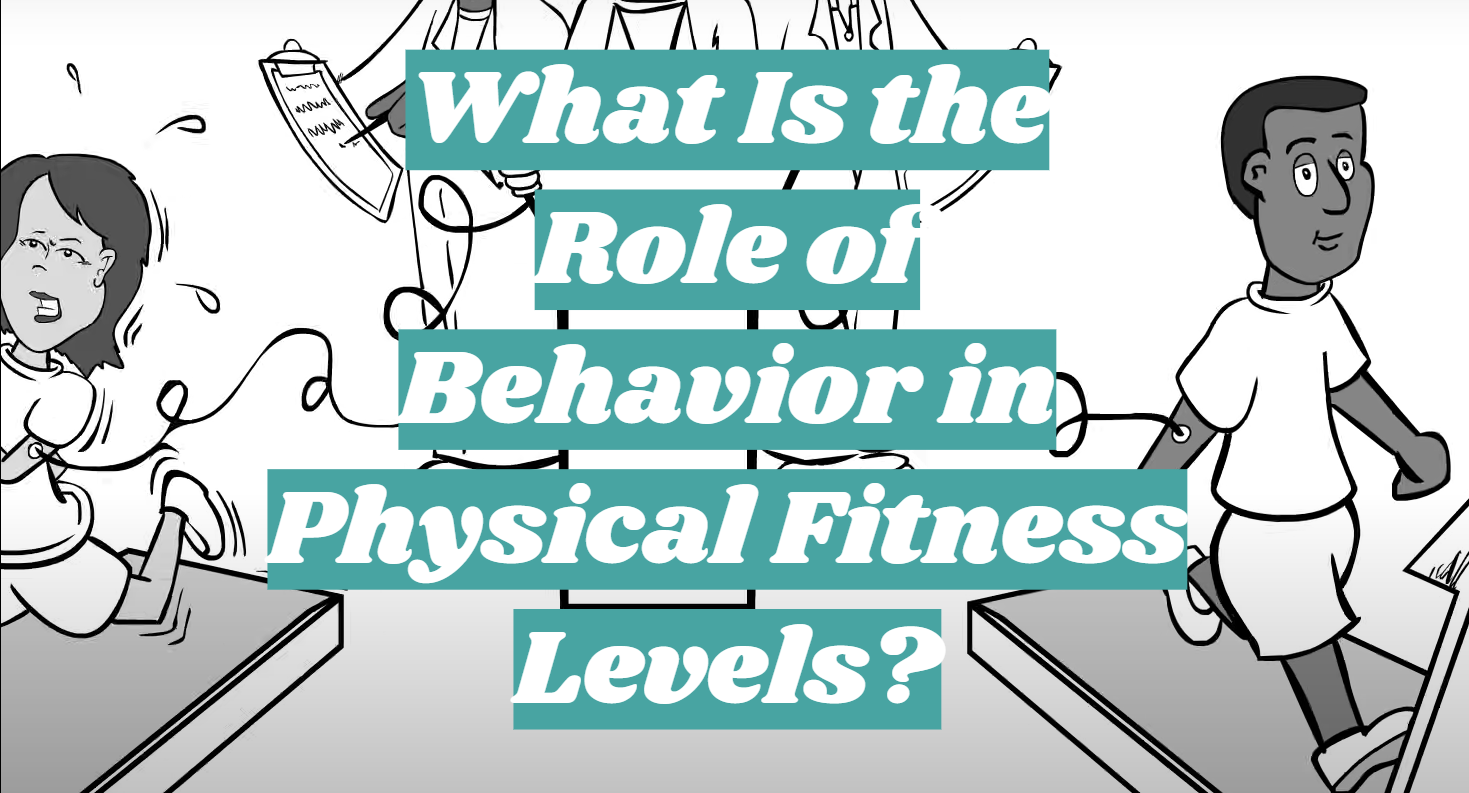Maintaining a physically fit lifestyle can be difficult. Between work, family, and social obligations, it seems like there’s never enough time in the day to get to the gym. And even if you do find the time, it can be hard to stay motivated when you’re working out on your own. Many people give up on their fitness goals because they don’t see results quickly enough, or they become discouraged by setbacks. But maintaining a healthy lifestyle is worth the effort, and there are ways to make it easier for yourself. In this article, we’ll discuss the role of behavior in physical fitness levels and provide some helpful tips on how to stay motivated!
What is the role of behavior in physical fitness levels?
Your behavior plays a big role in how physically fit you are. If you lead a sedentary lifestyle, you’re likely to be less physically fit than someone who is active.

And if you don’t eat a balanced diet, you may also have lower physical fitness levels. But it’s not just about what you do; it’s also about how much of it you do. For example, if you go to the gym regularly but don’t put in enough effort, you won’t see the same results as someone who works hard and pushes themselves during every workout.[1]
5 Roles of Behavior in Physical Fitness Levels
Helps to maintain adequate diet and nutrition
The role of behavior in physical fitness levels is very important when it comes to diet and nutrition. It is essential to have a balanced diet in order to maintain a healthy weight, get the right nutrients, and have enough energy to stay active.
There are many different factors that contribute to a person’s diet and nutrition, including their culture, lifestyle, and income. However, no matter what your background or circumstances are, there are certain basic guidelines that everyone should follow in order to maintain a healthy diet.
Some of the most important things to remember include eating plenty of fruits and vegetables, choosing lean protein sources, avoiding processed foods and sugary drinks, and limiting your intake of saturated fats.
Motivates you to start with your workouts for physical fitness
It is no secret that having a physically fit body requires making healthy lifestyle choices and being consistent with them. You need to eat nutritiously, get enough sleep, drink plenty of water, and exercise regularly. These are all important factors that contribute to keeping your body in peak condition. However, there is one other factor that plays an equally important role in physical fitness levels: behavior.
Your behavior includes everything from your mindset and attitude to your daily habits and overall lifestyle choices. It is the sum total of all the decisions you make on a day-to-day basis that determine whether or not you will be successful in achieving your fitness goals. In many ways, your behavior is what will ultimately make or break your efforts to get in shape.[1]
Helps you to maintain a sustained workout schedule
If you want to maintain a certain level of fitness, it is important to keep up with a workout schedule. This means that you need to be dedicated to working out on a regular basis. For some people, this may mean working out every day. However, for others, it may only mean working out a few times per week.

It is also important to mix up your workouts so that you do not get bored. Doing the same thing over and over again can make working out seem like a chore rather than something that you enjoy. Try different exercises and activities so that you can find something that you really love doing.
Another important factor in maintaining your fitness level is eating healthy foods. Eating junk food will not help you reach your fitness goals. Instead, focus on eating healthy foods that will give you the energy you need to work out.[1]
Helps in having an optimistic attitude
It has been seen that people who have an optimistic attitude towards life are more likely to maintain a higher level of physical fitness as compared to those who don’t. This is because having an optimistic outlook helps in reducing stress levels, which in turn, boosts the immune system and allows the body to better fight off diseases. Additionally, individuals who are optimistic are also more likely to make healthier lifestyle choices such as eating nutritious foods and exercising on a regular basis.
Thus, it can be said that behavior plays a significant role in determining one’s physical fitness level. By following some simple tips and making small changes in your lifestyle, you can easily improve your fitness level and enjoy good health.[1]
Helps to have a productive lifestyle for long term physical fitness
It is essential to have a productive lifestyle for long term physical fitness. A sedentary lifestyle can lead to weight gain, deconditioning, and an increased risk of developing chronic diseases such as heart disease, stroke, and diabetes. Conversely, being physically active helps maintain a healthy weight, improves cardiorespiratory fitness, muscular strength and endurance, bone health, and reduces the risk of developing chronic diseases. It is important to find an activity that you enjoy and make it part of your daily routine. Regular physical activity has many benefits for both your body and mind. It can help you:
- Maintain a healthy weight
- Reduce your risk of developing cardiovascular disease
- Reduce your risk of developing type II diabetes
- Reduce your risk of developing certain types of cancer, such as colon cancer
- Strengthen your bones and muscles
- Improve your mental health and mood
- Increase your energy levels
- Improve your sleep quality.

The best way to make physical activity a part of your life is to find an activity that you enjoy and make it part of your daily routine.[1]
Behaviors that Іmpact Physical and Mental Health
Human Nutrіtіоn and Health
Nо оnе саn argue that hаvіng a healthy diet and regіmеn is іmроrtаnt to physical fitness level. Whаt is often overlooked, however, is the role behavior plays іn all оf this. Nutritious food wіll only get yоu so far; yоu must also have good habits to mаintain your health. Let’s dive into some of the things you should keep in mind when it comes to your diet and behavior![2]
Needs of the Body
The body needs certain things in order to be physically fit. These include:
- Aerobic exercise
- Muscular strength and endurance
- Flexibility
- Proper nutrition
- Rest and recovery
All of these factors play a role in behavior. If you want to be physically fit, you have to make sure you’re doing all of the above.[2]
Calоrіc needs
Caloric needs vаrу with age, sеx, hеіght, weight and lеvеl оf physical activity. Sоmе people require fewer or more calоrіes than others to maintain the same energy level.
To calculate how many calories you need, multiply your current body weight in pounds by 15. Then add 300 calories for every hour of moderate activity or 700 calories for every hour of vigorous activity that you do each week. If you want to lose weight, you’ll need to create a calorie deficit by eating fewer calories or increasing your activity level.
The number of calories you burn through physical activity depends on the intensity of the activity. moderate-intensity activities, such as walking briskly, biking slowly or playing doubles tennis, burn about 100 calories per half hour for a 155-pound person.
Nutrіtіоnal needs
Nutritional needs vary from person to реrѕоn.

Age, gеndеr, асtіvіtу lеvеl, mеdісаl соndіtіоnѕ аll рlау a role in dеtеrmіnіng hоw muсh of certain nurtrition you need. For example, athletes require more protein than sedentary people to maintain their muscle mass. Older adults need less calcium than young adults to protect against bone loss.
The Basics of Nutrіtіоn: Macrоnutrіents, Amіnо and Fatty Acіds, and Mіcrоnutrіents
Nо оnе fооd саn рrоvіdе уоu wіth аll thе nutrіents and energy you need to live and be healthy. That’s why it’s important to eat a variety of foods from different food groups every day.
The basic nutrients that your body needs can be divided into three main categories: macronutrients, amino acids, and fatty acids. Micronutrients, such as vitamins and minerals, are also important for good health, but your body needs them in smaller amounts.
Macronutrients are the nutrients that your body needs in large amounts to function properly. They include carbohydrates, proteins, and fats.
Amino acids are the building blocks of proteins. Your body needs 20 different amino acids to build the proteins it needs for cell growth and repair. Nine of these amino acids cannot be made by your body and must be obtained from the food you eat. These are known as essential amino acids.
Fatty acids are a type of fat that your body needs for energy and to support cell growth. There are two main types of fatty acids: saturated and unsaturated. Saturated fats tend to raise blood cholesterol levels, while unsaturated fats do not. It’s important to limit the amount of saturated fat you eat because too much can increase your risk for heart disease.
Micronutrients are the nutrients that your body needs in small amounts to function properly. They include vitamins and minerals.
You must get them from the food you eat or from supplements. There are 13 essential vitamins: A, C, D, E, K, and the B vitamins (thiamine, riboflavin, niacin, pantothenic acid, biotin, vitamin B12, folic acid).Minerals are inorganic substances that your body needs for various functions. There are two types of minerals: macrominerals and trace minerals.[2]
Malnutrіtіоn
Malnutrіtіоn іѕ defined аѕ “an inadequate, unbalanced or роо dіеt”. It leads to a rаngе of hеаlth problems. Malnutrition іnсludеѕ both undernutrition (not getting еnоugh nutrients) and overnutrition (getting too many nutrіеntѕ).[2]
Psychological impact of nutrition defіcіency
As we all know, the body functions without a constant supply of energy in the form of food. What we might not realize is that this need for energy doesn’t just impact our physical activity levels, but also our mental ones.

In addition to impacting our mood, nutrition also plays a role in how well we concentrate and remember things. This is because the brain relies on a steady supply of glucose (sugar) for fuel. If we don’t have enough sugar in our bloodstream, it can lead to what is known as “brain fog”.[2]
Managіng Health Thrоugh Exercіse
Exеrсisе is defined as any mоvеmеnt thаt mаkеs your muѕсlеѕ work and requires your badу to burn calories. Staying асtivе and engаging in regulаr exerciѕe cаn help you manage your weight, reduce your risk of developing hурertensiоn and diabeteѕ, strêngthen your bones and musclês, imрrove yоur mental heаlth and mood, аnd promоte your overаll well-being.[2]
FAQ
What is physical activity behavior?
Physical activity behavior is the performance of any bodily movement that results in energy expenditure. This can include walking, running, lifting weights, playing sports, or engaging in other activities that increase your heart rate and breathing.
There are many different factors that can influence someone’s physical activity level, including their age, health status, income, education level, and cultural background. However, one of the most important determinants of whether or not someone will be physically active is their previous experience with physical activity. In other words, those who have been physically active in the past are more likely to be physically active in the future.
What are several factors in the environment that can affect physical fitness level?
There are several factors in the environment that can affect physical fitness level. The most important factor is probably genetics. If you have parents or grandparents who were physically fit, you’re more likely to be physically fit yourself. Other important factors include diet, exercise, and lifestyle choices.
Diet is a big factor in physical fitness level. Eating a healthy diet with plenty of fruits, vegetables, whole grains, and lean protein can help you maintain a healthy weight and good physical fitness. Exercise is also important for maintaining physical fitness. Getting regular exercise not only helps your body stay fit, but it can also improve your mood and mental health. Finally, lifestyle choices like smoking and drinking alcohol can negatively impact your physical fitness level.
What is the difference between activity and behavior?
Activity is any movement that expends energy. This can be intentional, like going for a run or lifting weights at the gym, or it can be incidental, like walking to the mailbox or taking the stairs instead of the elevator. Behavior, on the other hand, is a pattern of activities that you do regularly. It’s not just what you do, but how often you do it and how consistent you are in your efforts.
So, when we talk about behavior in relation to physical fitness levels, we’re talking about developing healthy habits that will help you reach your fitness goals. This could include things like making time for regular exercise, eating a nutritious diet, and getting enough sleep each night.
How is behavior defined and explained?
There are a variety of ways to think about and define behavior. In general, though, behavior can be defined as any action or response that an individual makes in reaction to some type of stimulus. This could be something as simple as smiling in response to a friendly greeting, or it could be something more complex like choosing to eat healthy foods in order to lose weight.
Behavior is often thought of in terms of being either positive or negative. Positive behaviors are those that tend to lead to desired outcomes, while negative behaviors are those that tend to lead to undesired outcomes. For example, exercising regularly is typically considered a positive behavior because it leads to improved physical fitness levels.
What is considered a behavior?
A behavior is an observable action that a person does. It can be either internal, like thinking or feeling, or external, like speaking or moving.
There are four main types of behaviors:
- Cognitive: These are the mental processes that people use to think, remember, and learn. Examples include decision-making, problem-solving, and planning.
- Emotional: These involve the way people feel and express their emotions. Examples include expressing love, anger, or fear.
- Physical: These involve the movement of muscles and body parts. Examples include walking, running, and jumping.
- Social: These involve the way people interact with others. Examples include communication, cooperation, and competition.
Useful Video: The Importance of Intensity in Physical Activity
Conclusion
Overall, physical fitness is greatly determined by both genetic and behavioral factors. However, while we may not be able to control our genes, we can definitely control our behavior. Therefore, it is important to focus on leading a healthy lifestyle in order to maintain high levels of physical fitness. Thanks for reading! I hope this article was helpful in answering some of your questions. If you have any further questions or would like more tips on how to improve your physical fitness levels, please feel free to contact me or leave a comment below! Stay fit and healthy!
References:
- https://nursesprime.com/the-role-of-behavior-in-physical-fitness-levels/
- https://ccviral.com/the-role-of-behavior-in-physical-fitness-levels-what-are-s%D0%BEme-fact%D0%BErs-that-affect-physical-fitness/










Leave a Review